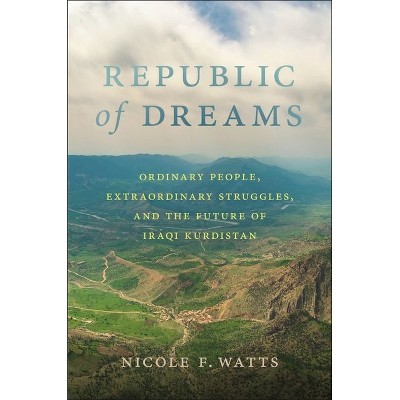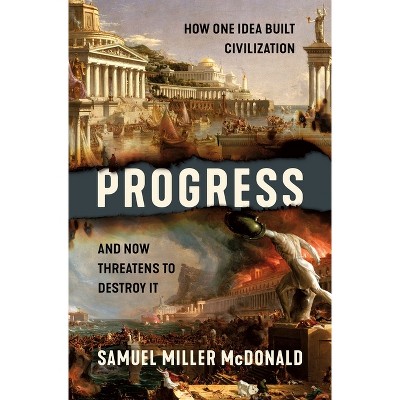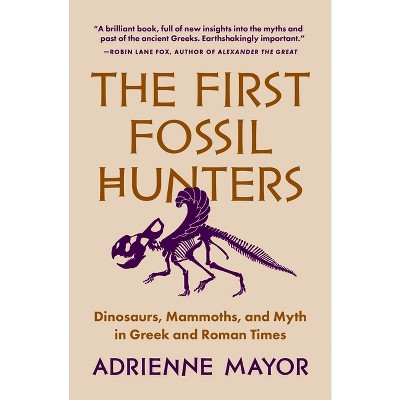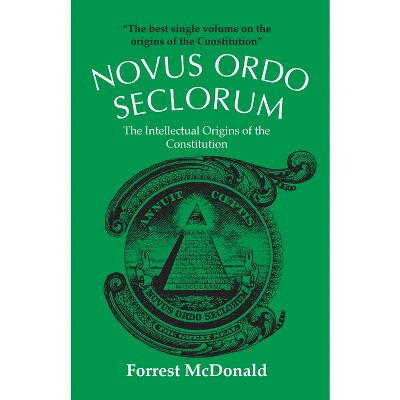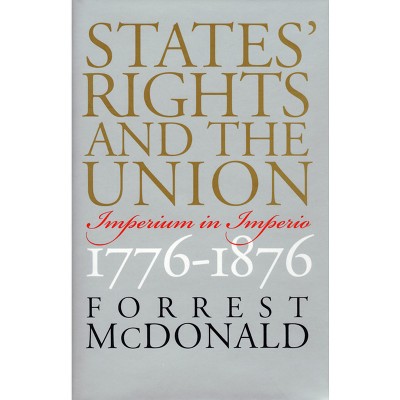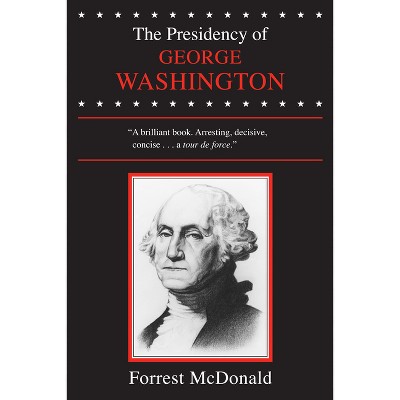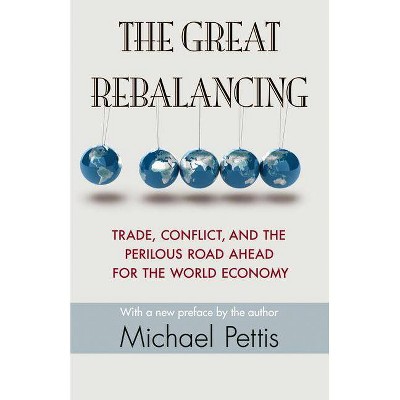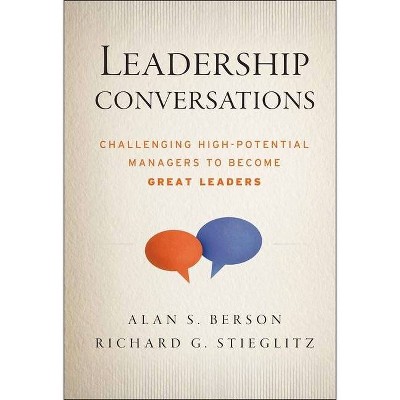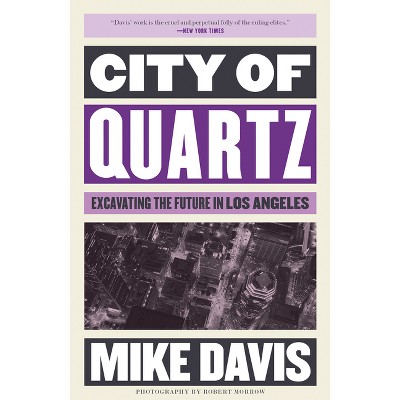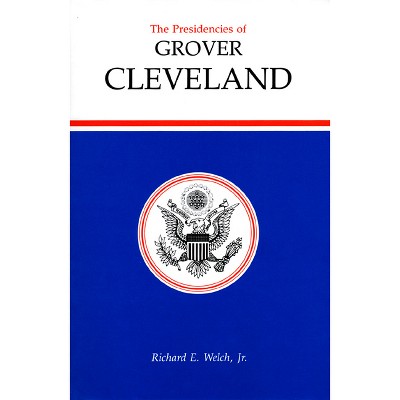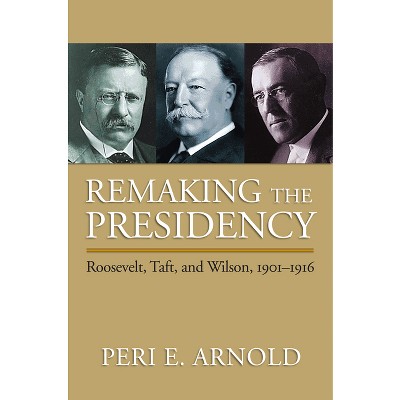Sponsored

American Presidency - by Forrest McDonald (Paperback)
In Stock
Sponsored
About this item
Highlights
- Jefferson Lecturer and Pulitzer Prize finalist Forrest McDonald is widely recognized as one of our most respected and challenging historians of the Constitution.
- Author(s): Forrest McDonald
- 524 Pages
- History, United States
Description
About the Book
McDonald explores how and why the presidency has evolved into such a complex and powerful institution, unlike any other in the world. He chronicles the presidency's creation, implementation, and evolution and explains why it's still working today despite its many perceived afflictions.Book Synopsis
Jefferson Lecturer and Pulitzer Prize finalist Forrest McDonald is widely recognized as one of our most respected and challenging historians of the Constitution. He has been called brilliant, provocative, controversial, passionate, pugnacious, and crafty in intellectual combat. Whatever the label, he remains unsurpassed as a commentator on the American founding. Novus Ordo Seclorum, his best-known work, was hailed as "magisterial," "a tour-de-force," "the American history book of the decade," "the best single book on the origins of the U.S. Constitution," and was featured on Bill Moyers's highly praised PBS series In Search of the Constitution. McDonald now applies his considerable talents to a study of another venerable institution-the American presidency. Writing at the height of his powers as an intellectual historian, McDonald explores how and why the presidency has evolved into such a complex and powerful institution, unlike any other in the world. Scores of republics have come into existence during the last two centuries and many have adopted constitutions similar to our own. But, as McDonald persuasively shows, the American presidency is unique-no other nation has a leadership position that combines the seemingly incongruous roles of ceremonial head of state and chief executive magistrate. Lacking an acceptable role model, McDonald explains, the founding fathers constructed their idea of the presidency from sources as diverse as the Bible, Machiavelli, John Locke, the Ancient Greeks and Romans, the laws of England, and the early colonial and state government experiences. So many influences, he suggests, guaranteed a substantial degree of persistent ambiguity and contradiction in the office. McDonald chronicles the presidency's creation, implementation, and evolution and explains why it's still working today despite its many perceived afflictions. Along the way, he provides trenchant commentary upon the Constitutional Convention, ratification debates, presidencies of Washington and Jefferson, presidential administration and leadership, presidential-congressional conflicts, the president as chief architect of foreign policy, and the president as myth and symbol. He also analyzes the enormous gap between what we've come to expect of presidents and what they can reasonably hope to accomplish. Ambitious, comprehensive, and engaging, this is the best single-volume study of an institution that has become troubled and somewhat troublesome yet, in McDonald's words, "has been responsible for less harm and more good than perhaps any other secular institution in history." It will make a fine and necessary companion for understanding the presidency as it moves into its third century.From the Back Cover
'Full of perceptive observations and free of cant and cliche. McDonald lucidly discusses many of the issues and controversies surrounding the executive office.'--New York Times Book ReviewReview Quotes
"Forrest McDonald makes history breathe."--New York Times
"A trenchant and provocative essay on ambiguities and dilemmas of the American presidency. It raises significant questions and throws out significant insights."--Times Literary Supplement
"Instructive and valuable, full of perceptive observations and free of cant and cliché"--New York Times Book Review
"A lucid, insightful, and well-researched analysis of the creation, establishment, and development of the presidency."--Choice
"This book was a pleasure to read. Knowledgeable and insightful, it is the work of a seasoned historian who has earned the right to make the strong judgments that he does. Above all, however, this book provokes us to ponder deeply the health not only of the presidency but of the whole regime."--Review of Politics
"This is a wonderfully instructive and entertaining book."--Journal of Southern History
"This intellectual history will assuredly prove profitable for both introductory and advance students."--American Review of Politics
"This thought-provoking work deserves the serious consideration of any reader interested in the American presidency."--Register of the Kentucky Historical Society
"[McDonald] recounts the growth of the national state, while expressing skepticism about its consequences. Even those holding different ideological views will find McDonald's perspective refreshing and generally judicious."--Journal of Interdisciplinary History
"An epic undertaking, meticulously researched and footnoted, written in the conversational style that readers have come to enjoy in McDonald's works."--Modern Age
"At last, a grand and sweeping history of the presidency. It has just enough partisan bite to keep from being aloof but is magisterial nevertheless. And it crackles. Will be required reading."--Leonard W. Levy, coeditor of the Encyclopedia of the American Presidency
"A fascinating and erudite examination of the roots of the American presidency. It is of great historical value and contains a variety of thought-provoking insights about the current status and future of that institution."--Fred I. Greenstein, author of The Hidden Hand Presidency: Eisenhower as Leader
"In his customarily trenchant and provocative style, Forrest McDonald provides an illuminating survey of the theoretical background and continuing political exigencies that have shaped the American presidency. Incisive analysis of political ideas, guided by the shrewd sense of political realism of a master narrative historian, distinguishes this important contribution to our constitutional history."--Herman Belz, coeditor of To Form a More Perfect Union: The Critical Ideas of the Constitution
"Should be required reading for anyone who studies or teaches American constitutional or political history. It is not a history of presidents, but of the institution they have shaped and which, as McDonald shows, has often shaped them. One will find oneself arguing with McDonald in many places, to me the surest sign that he has succeeded in his task."--Melvin I. Urofsky, author of A History of the American Constitution
"McDonald's American Presidency is a rich resource for all students, professional and amateur, of that great institution. McDonald carries his story from Bracton and Machiavelli to Bill Clinton, and like a true historian, he improves our present understanding by making it alive to the past."--Harvey C. Mansfield, Jr., author of Taming the Prince: The Ambivalence of Modern Executive Power

